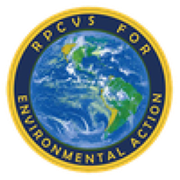The date was October 24, 2007.
It was my second year at the University of Pittsburgh’s Anthropology Ph.D. program when MS hit. Within minutes of arriving at the school’s Halloween festival, I lost my vision, ability to talk and walk. Rushed to the hospital, I was diagnosed with MS and placed on a disease-modifying therapy, Avonex, within hours.
A few days later, with vision restored, I met my Ph.D. advisor.
“Well Mike, what are we going to do?”
I had no idea. The diagnosis annihilated any chance of completing my original long-term research plans in the Pacific Island Nation of Kiribati. I first went to the Pacific Island Nation of Kiribati as a Peace Corps Volunteer. While there, a host relative passed away from mysterious health complications. I eventually learned he passed away from acquired immunodeficiency syndrome or AIDS. Two years after completing Peace Corps service, I returned to the country to work with the National HIV/AIDS Taskforce. I applied to the Ph.D. program with intentions of returning to continue my work with the National HIV/AIDS Taskforce and UNAIDS.
MS changed everything. Avonex required refrigeration, transportation and electricity. None of which were reliably available in Kiribati.
My advisor continued his questioning.
“Is there anything else you would want to do?”
“Maybe,” I thought to myself.
Throughout my time in Kiribati, I noticed significant environmental changes. The tides were getting higher, the droughts longer and the storms stronger. Several nights I watched the ocean as it rose, level with or on top of the land. Villages once filled with life were now barren. Thanks to these hungry tides, I began to fear the sea.
I told my advisor: “There is this thing called global warming. I’ve heard a lot about it, but many people don’t believe it is real. I worry that if it is real, and nothing is done to stop it, Kiribati may be one of the first countries to vanish. I think it needs attention from a humanities perspective. Kiribati’s future may be at risk.”
Six years after that conversation, with help from my university and a New Zealand Fulbright grant, I finished my degree. My research focused on climate change, human health, climatically induced and transnational migration.

Eighteen years after first stepping onto Kiribati soil, my commitment to the nation remains. MS may temporarily slow me down—it sometimes does—but it has never stopped me. In a way, I see MS as a gift. If not for the diagnosis, I would not be where I am today. MS has given my life purpose, meaning and opportunity. Living with MS, I continue fighting for those most impacted by climate change. I hope I will never stop.
From one MS Warrior to another, never give up on your dreams, never give up the fight.
- 27 Mar 2019 by Michael Roman
- 20 Mar 2019 by Brady Fergusson
The following story was posted on the Climate Changers website on March 20, 2019.
Imagine standing on the beach of a tropical island. You feel the warm sand between your toes. You smell the salty breeze and hear the swaying leaves of coconut trees. You see the turquoise water of the lagoon in front of you. It is beautiful, isn’t it? You then turn 180 degrees and see the open ocean only a hundred meters away. You look all around and observe that the land is only a few feet higher than the water. It is worrisome, isn’t it? You are on a coral atoll, and in this age of climate change and rising seas, it is a scary place to be.
From 2006 until 2008, I lived on one of the coral atolls that make up the Republic of Kiribati, located in the Central Pacific Ocean. I was there to do Health and Community Development work with the United States Peace Corps. During my time in Kiribati, I was amazed by the friendliness and hospitality of the people—although most had few possessions and little money, they welcomed me like a member of their own family and gave me as much as they could offer. I lived with a family that “adopted” me, I made many friends, and I met the woman who I would marry. Although I now live on the other side of the world in the U.S., I am still strongly connected to my family and friends in Kiribati.
Kiribati is a beautiful country, but its future is in jeopardy because of the impacts of climate change. The rising ocean, in particular, is making it difficult for people to get by. Many wells have become brackish, plants people depend on for staple foods—like breadfruit, coconuts and taro root—are producing less, the ocean is eroding the land, and the high tides are getting higher and flooding people’s homes more often. At some point in the future, the people of Kiribati will have to leave their islands and look for homes elsewhere; most of them will have nowhere to go.
There are many people around the world who are facing uncertain futures as the people of Kiribati are. Rising sea levels and other impacts of climate change are displacing people and will do so at an increasing rate if we do not slow down climate change. I have made it my mission to raise awareness of the people of Kiribati and others who are becoming climate change migrants. By giving presentations at public and private events, contacting elected officials, and using social media—Twitter and Facebook, especially— I am working to get people to know about climate change migrants and support action to mitigate climate change and facilitate the migration of people displaced by climate change. I believe that when more people understand how climate change is hurting other humans, more people will be ready to act.



